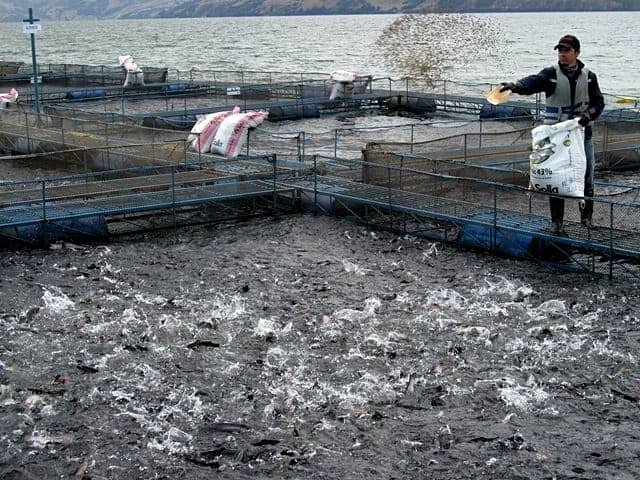
Cold water stress can negatively affect the growth, immune function, and overall health of Nile tilapia (Oreochromis niloticus). To address this challenge, researchers from Purdue University Fort Wayne and the University of Arkansas conducted a study to investigate the potential benefits of vitamin C and zinc supplementation to mitigate the adverse effects of cold water stress on tilapia when raised in suboptimal temperatures.
The Role of Vitamin C and Zinc
Vitamin C and zinc are essential micronutrients that play crucial roles in various physiological processes, including immune function, growth, and tissue repair. In fish, these nutrients are particularly important for maintaining health and well-being, especially under stressful conditions.
- Vitamin C:
- Enhances immune response
- Promotes collagen synthesis and wound healing
- Protects cells from oxidative damage
- Zinc:
- Supports immune function
- Participates in protein synthesis and cell growth
- Essential for wound healing
The Experiment
The study, published in the journal PlosONE, involved dividing Nile tilapia fry into eight groups, each housed in a separate 20-gallon tank. Four tanks were maintained at a warm, optimal temperature for growth, while the remaining four were exposed to cold water stress by lowering the temperature to 15 ± 2°C. Additionally, the experimental groups received varying levels of vitamin C and zinc supplementation in their feed.
Immune Response and Growth Enhancement
The results of the study were promising. Tilapia that received vitamin C and zinc supplements under cold water conditions showed a significant improvement in their immune response. This was evident in their increased ability to fight pathogens and maintain overall health. Moreover, the supplemented fish exhibited notable muscle regeneration, allowing them to achieve growth rates comparable to those of the control group maintained in warm water.
Key Findings:
- Improved immune response: Vitamin C and zinc supplementation boosted the immune function of tilapia exposed to cold water stress.
- Enhanced muscle regeneration: Supplemented fish showed faster muscle repair and growth, mitigating the negative effects of cold water on their development.
- Comparable growth rates: Tilapia receiving vitamin C and zinc supplements in cold water conditions achieved growth rates similar to those kept in optimal warm water.
Discussion
Vitamin C and zinc are essential micronutrients that play crucial roles in various physiological processes, including immune function and tissue repair. The combined supplementation in this study appears to amplify their beneficial effects, particularly in the challenging context of cold water stress.
The findings suggest that vitamin C and zinc can help tilapia cope with the adverse effects of suboptimal temperatures, thereby expanding their aquaculture potential to colder regions. By incorporating these micronutrients into tilapia diets, producers can improve fish health, enhance growth rates, and reduce losses due to disease and environmental stress.
Implications for Aquaculture
These findings have significant implications for the aquaculture industry. By incorporating vitamin C and zinc supplements into tilapia diets, fish farmers can potentially enhance the resilience of their fish to temperature fluctuations, reduce mortality rates, and improve overall productivity.
This study provides valuable insights into the nutritional requirements of tilapia and highlights the importance of targeted supplementation to support their health and well-being under challenging environmental conditions.
Stay Always Informed
Join our communities to instantly receive the most important news, reports, and analysis from the aquaculture industry.
Conclusion
“Overall, our findings suggest that vitamin C and zinc supplementation can mitigate the physiological stress response in fish, as indicated by the controlled parameters in this study. Histological analysis further confirmed that these supplements enhance the immune response, leading to improved tissue recovery and regeneration after stress-induced damage,” the researchers concluded.
The results of this study provide valuable information on the potential benefits of vitamin C and zinc supplementation for Nile tilapia. By improving the immune response and promoting muscle regeneration, these micronutrients can help mitigate the negative effects of cold water stress and enhance overall aquaculture productivity.
Future research may explore the optimal dosages of vitamin C and zinc for tilapia and investigate their potential interactions with other dietary components.
Contact
Ahmed Mustafa
Department of Biological Sciences, Purdue University Fort Wayne
IN, United States of America
Email: mustafaa@pfw.edu
Reference (open access)
Mustafa A, Belavilas M, Hossain R, Mishu I (2024) Immunological effects of vitamin c and zinc on tilapia (Oreochromis niloticus) exposed to cold water stress. PLoS ONE 19(9): e0311078. https://doi.org/10.1371/journal.pone.0311078
Editor at the digital magazine AquaHoy. He holds a degree in Aquaculture Biology from the National University of Santa (UNS) and a Master’s degree in Science and Innovation Management from the Polytechnic University of Valencia, with postgraduate diplomas in Business Innovation and Innovation Management. He possesses extensive experience in the aquaculture and fisheries sector, having led the Fisheries Innovation Unit of the National Program for Innovation in Fisheries and Aquaculture (PNIPA). He has served as a senior consultant in technology watch, an innovation project formulator and advisor, and a lecturer at UNS. He is a member of the Peruvian College of Biologists and was recognized by the World Aquaculture Society (WAS) in 2016 for his contribution to aquaculture.




